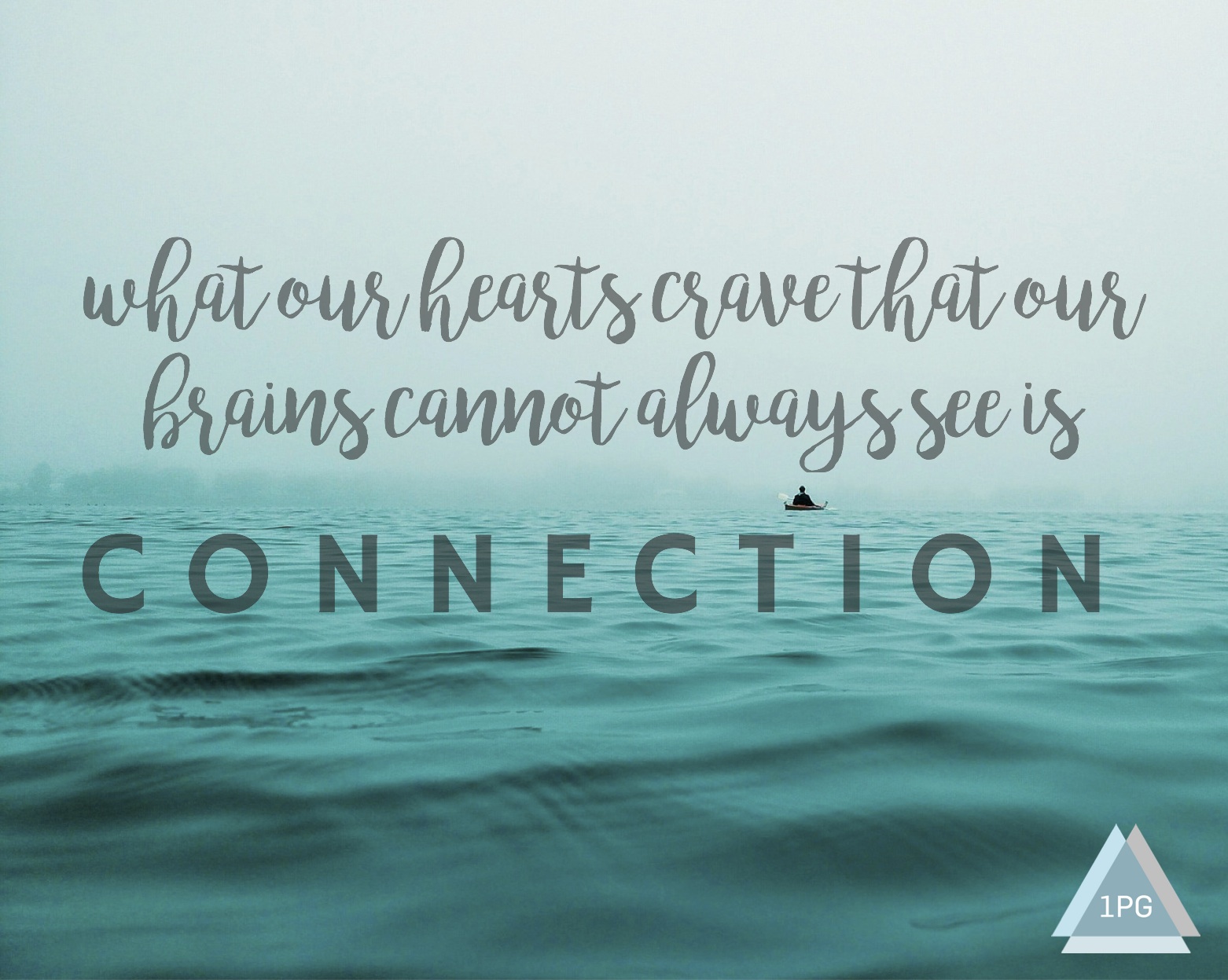The Cost of Isolation
 “Anxiety is the dizziness of freedom.”
“Anxiety is the dizziness of freedom.”
Søren Kierkegaard
There’s a fantastic series on PBS called “This Emotional Life” that explores the nature of our emotions and how the brain reacts in all sorts of funny ways.
When describing fear, this series talks about the function of our amygdala and its relationship with the prefrontal cortex. Our amygdala triggers the emotions we feel when we are in a situation that we should fear. That sudden rush of dizziness when you are standing on a high ledge, or facing a dangerous animal in the wild...that’s your amygdala saying, “This isn’t good, you need to fight or run!”
Our Brain's Response to Fear
This is communicated through a primary highway to the prefrontal cortex - the decision-making part of our brain. It’s almost instantaneous. It’s the autobahn of our brains allowing us to survive dangerous situations. My friends make fun of me for a moment in high school when we saw a small shark fin in the shallows of the ocean - I was half a mile away before I even realized I was running. My amygdala responded (quite perfectly in my opinion…) to what I perceived as all but certain death...it was time to get out of there.
The difficult piece to this is that the response from the prefrontal cortex back to the amygdala is described as occurring on “back roads.” The messages travel pretty slowly in response to that initial panicked message of “time to fight or run!” So we often do not realize we are not in real danger for a bit. This is how phobias develop. An emotional response is triggered early in life, and your brain is now conditioned to respond this way each time (though again, if it’s sharks, you are totally right to condition your brain to respond in fear…) It takes a while for our prefrontal cortex to tell our amygdalas to chill out. We are left in a state of anxiety, panic, and fear. Ultimately, we lose some ability to make informed decisions because we just want relief.
The Problem with Our Response
This creates a problem for us in our highly developed world. I believe we are conditioning responses to a lot of stimuli in our life that cause us fear. Unfortunately, our response has shifted to isolation.
For most of us, we are not facing the terrifying killers everyday our ancestors did. But our brains still have this function to save us. However, it is saving us from things like being authentic with those around us and being honest with where we are. Bear with me - I don’t want to overstate this but I think it’s real:
When we feel the anxiety of our brokenness, we respond with a desire to fight this brokenness (“I can overcome this”) or to flee (“I can’t possibly tell anyone I did this”). We move away from relationship into a survival mode. And we are carrying the weight of this fear and anxiety deep within us every day.
The fear of being known is something I think a lot about because it is one of the primary reasons people end up in therapy. There is a cost to keeping everything hidden. We feel like we are surviving because it pushes the anxiety and fear way, but we have conditioned our minds to believe it is good for us. We feel the rush of guilt and shame, fearing that we have once again committed that one sin we said we would stop, and instead of hearing the messages from our prefrontal cortex telling us to slow down, we stay silent and fight or run on our own.
Counting the Cost
Authenticity is terrifying. It is easier to hide. But we have to slow down and recognize what is happening inside of us when we face these moments. Is there a cost to being honest? Absolutely. And it might be as bad as we expect it to be. But the cost to hiding or fighting on our own is eventually worse. It is in isolation that we head toward death. It is often in the silence of a counseling room that I hear someone declare that they are on the verge of losing everything - and how? Often because they have responded to the fear and anxiety of being known by isolating themselves.
I really don’t want to sensationalize this and make it seem like an ultimatum. But I do feel strongly that we are so completely unaware of how we respond to our fear of letting people in that we never stop to consider what we are actually doing. We don’t take the time to step outside of ourselves and consider our reaction. We don’t stop to ask if our prefrontal cortex is even sending the messages back to our amygdala telling us to slow down.
We do what it takes to rid ourselves of the fear and anxiety. We need to start interrupting the process. We need to let others in and allow the honesty to challenge our conditioned brains. We need to recognize that what our hearts crave that our brains cannot always see is connection - and in that connection, the real root of our fear and anxiety can be met with the assurance that we have no need to be alone in these emotions. What would it look like for you to let someone else in this week? Where have you isolated yourself in response to your fear of being known?
